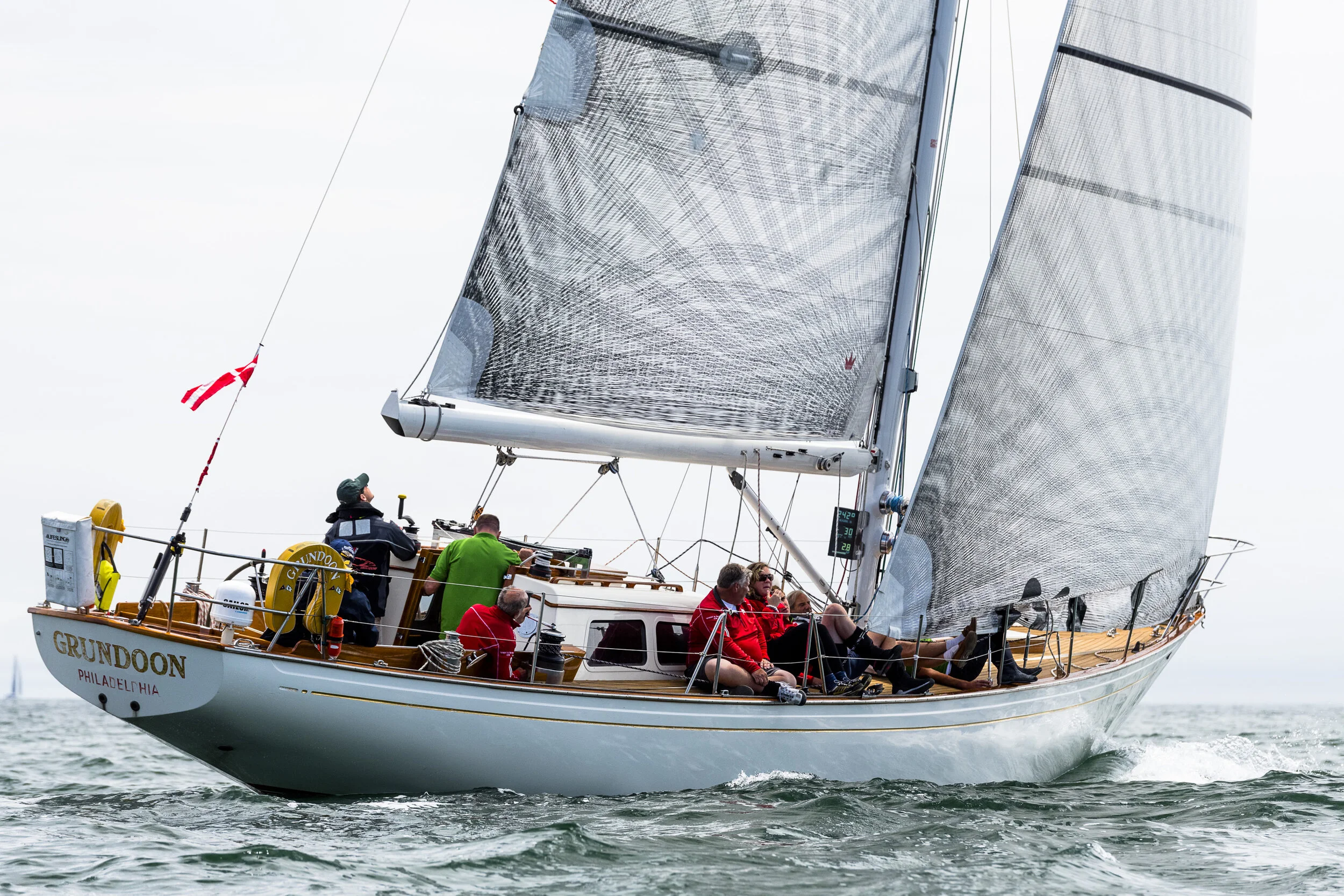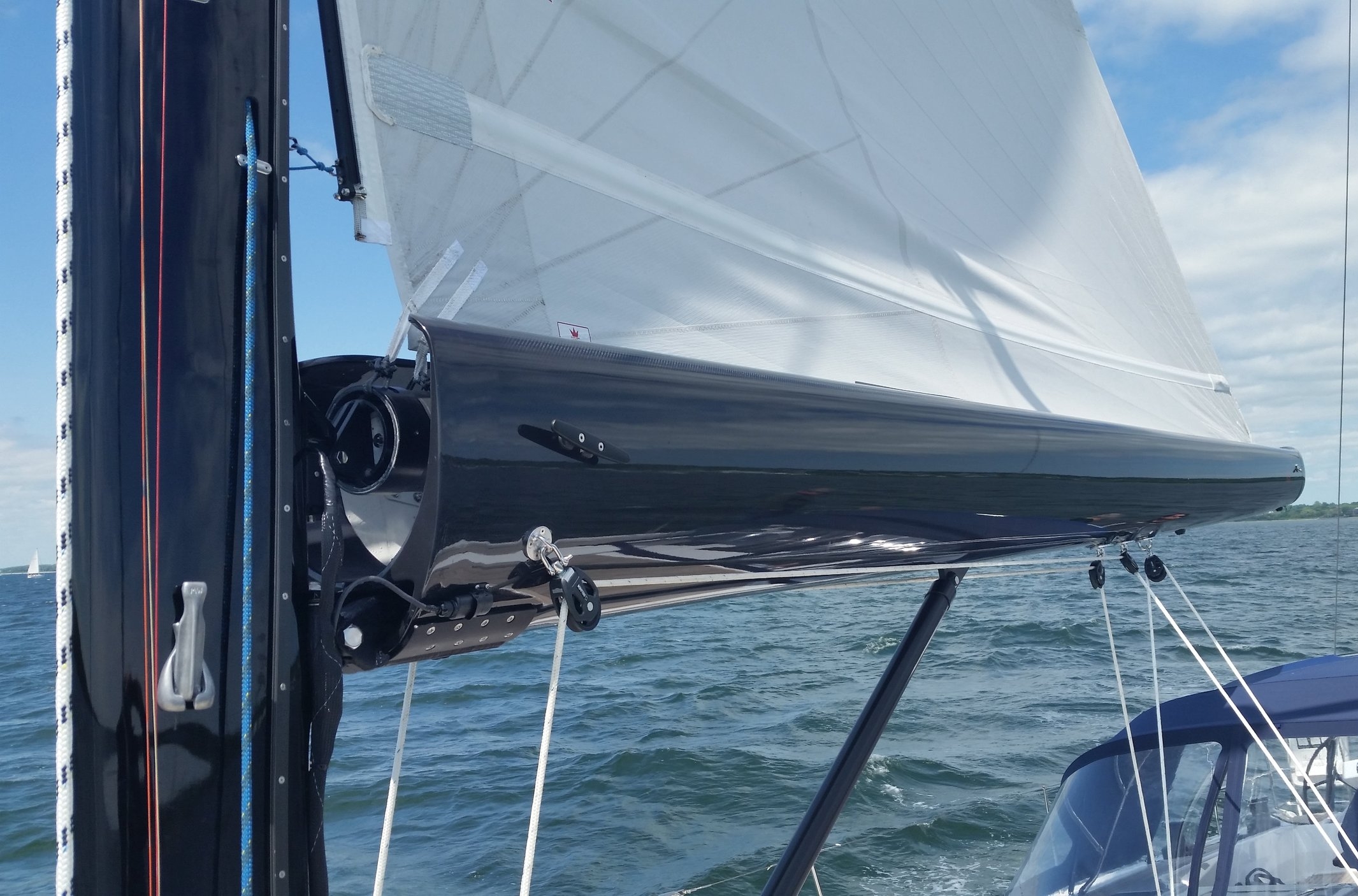masts | booms | poles | bow sprits
GMT Composites has been building carbon composite sailboat spars longer than any other mast builder in the world.
The image above was taken at the start of the 2018 Newport to Bermuda Race. Grundoon is a Columbia 50 with a GMT rig that was put in just before the race. She won her class and the Saint David's Lighthouse Trophy for first in Division out of 85 boats. - Photo by Cory Silken
carbon MASTS
GMT Composites is best known for their carbon composite masts for sailboats 30' to over 120'.
carbon BOOMS
GMT Composites builds conventional carbon composite booms for sailboats of all sizes, as well as Pocket Booms, and PowerFurl™ Booms, for sailboats up to 120ft.
carbon poles
GMT Composites offers carbon spinnaker and whisker poles in standard lengths and sizes as well as custom poles for most any application or boat size.
carbon bow sprits
GMT Composites has a range of solutions from fixed bow sprits to deck mounted bow sprits and everything in between.
GMT Carbon Fiber Spars
Among the many things that we produce, GMT Composites is best known for their carbon sailboat spars. We have been engaged in spar building longer than any other maker of carbon composite sailboat spars, and we have worked with some of the best and most well known builders and designers. From Hinckley and Hylas, to Morelli and Melvin, Brooklin Boatyard, Lyman-Morse and Nautors, GMT has the experience you can count on, and we welcome all projects big and small.
In 1990, when David Schwartz [our Lead Engineer and former President] became managing partner, GMT secured the first contract ever awarded to supply carbon furling masts for performance cruising boats. With racing rules prohibiting the use of carbon until 1994, cruising was the first beneficiary of this highly effective construction. Since then, we have built more than 1,000 spars for racing and cruising boats, ranging in size from 21ft to over 120ft in length.
Better Engineering
Spar engineering is based on the characteristics of your boat and how you will sail her. For family cruisers, the emphasis is more on strength; for racers, it’s on being as light as possible. People sailing in rougher, windier waters or venturing into more remote locations need higher margins of safety. We factor all of this into the engineering process.
Details of each spar are all analyzed with our proprietary software and Finite Element Analysis (FEA) software. Additional laminate is added in high stress areas and around both holes and attachment points. Metal parts are designed specifically to be compatible with the composite tube.
A no-cost proposal is specifically prepared for you. In it, GMT provides the design weight of the carbon fiber mast tube along with the weight of a comparable alloy spar so that you can see the weight savings that carbon offers.
Better Construction
GMT uses pre-impregnated carbon/epoxy. With this material we can precisely control the amount of resin throughout the spar. Hand wet-out or wet-preg processes can use too much resin, which adds weight, or too little, which weakens the structure.
GMT has been using pre-preg material from the same supplier for more than 16 years. While it is more expensive, this product is the best available. We specifically chose it for its superior resistance to damage from impact.
Our pre-preg resin system cured at 250 degrees F does not lose strength in hot, sunny climates. Masts can be painted dark colors or clear coated without fear of overheating in such conditions.
GMT spars are built from layers of uni-directional material. These layers are oriented in different directions to resist the compressive, bending and twisting loads that spars experience. Filament winding or braiding cannot give the ideal fiber orientation at all locations along the mast.
Better Finish
GMT spars are fully faired. Reinforced areas are allowed to stand proud to subtly show that the spar is made from advanced composites. Such areas are far more pleasing aesthetically than the platforms and straps used to mount hardware on metal spars.
GMT spars are finished with a two part linear polyurethane paint, similar to what is used on the finest yachts’ topsides. This finish retains its high gloss for years. It can be buffed and waxed, even after years of use, to restore and enhance its gloss. We are careful to isolate metal parts, if mounted on or inside spars, to eliminate bubbling of paint which can result from corrosion.
More Experience
GMT has been building carbon composite sailboat spars longer than any other manufacturer. Our lead engineer has been designing carbon spars since 1990, and our lead shop technicians have been with GMT for 15 years or more. That consistency provides GMT with more experience and a unique and unmatched approach to designing and building carbon spars. We have worked with many of the top builders and designers, and our record for safety and reliability has been proved on the racecourse, and in the most demanding weather and offshore conditions.






